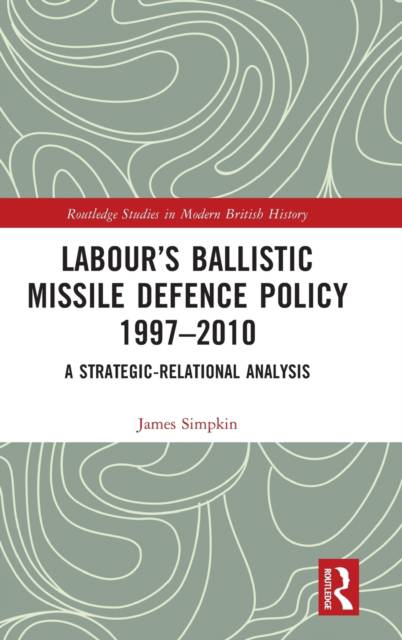
- Retrait gratuit dans votre magasin Club
- 7.000.000 titres dans notre catalogue
- Payer en toute sécurité
- Toujours un magasin près de chez vous
- Retrait gratuit dans votre magasin Club
- 7.000.0000 titres dans notre catalogue
- Payer en toute sécurité
- Toujours un magasin près de chez vous
Description
This book uses the 'strategic-relational approach' to explain how the Labour governments of Tony Blair and Gordon Brown integrated the United Kingdom into the US ballistic missile defence system in order to maintain national security and to uphold the 'special relationship' while at the same time recognising that voters were in general opposed to missile defence.
Labour's Ballistic Missile Defence Policy 1997-2010 examines how the Labour administration was tasked with navigating a domestic political environment in which they had to appear tough on defence in general in order to appeal to a broader range of the electorate while recognising that voters were opposed to missile defence in particular. This book seeks to answer the question of why the centre-left government of Tony Blair and Gordon Brown, elected on a mandate of multi-lateralism in international relations and espousing an 'ethical dimension' to foreign policy, committed the United Kingdom to US ballistic missile defence - an internationally divisive military project associated with the US Republican Party and George W. Bush in particular.
This book is essential for students and researchers interested in British military history, international relations, strategic studies, British politics, Labour politics and political theory.
Spécifications
Parties prenantes
- Auteur(s) :
- Editeur:
Contenu
- Nombre de pages :
- 206
- Langue:
- Anglais
- Collection :
Caractéristiques
- EAN:
- 9781032289250
- Date de parution :
- 23-12-22
- Format:
- Livre relié
- Format numérique:
- Genaaid
- Dimensions :
- 156 mm x 234 mm
- Poids :
- 485 g

Les avis
Nous publions uniquement les avis qui respectent les conditions requises. Consultez nos conditions pour les avis.






